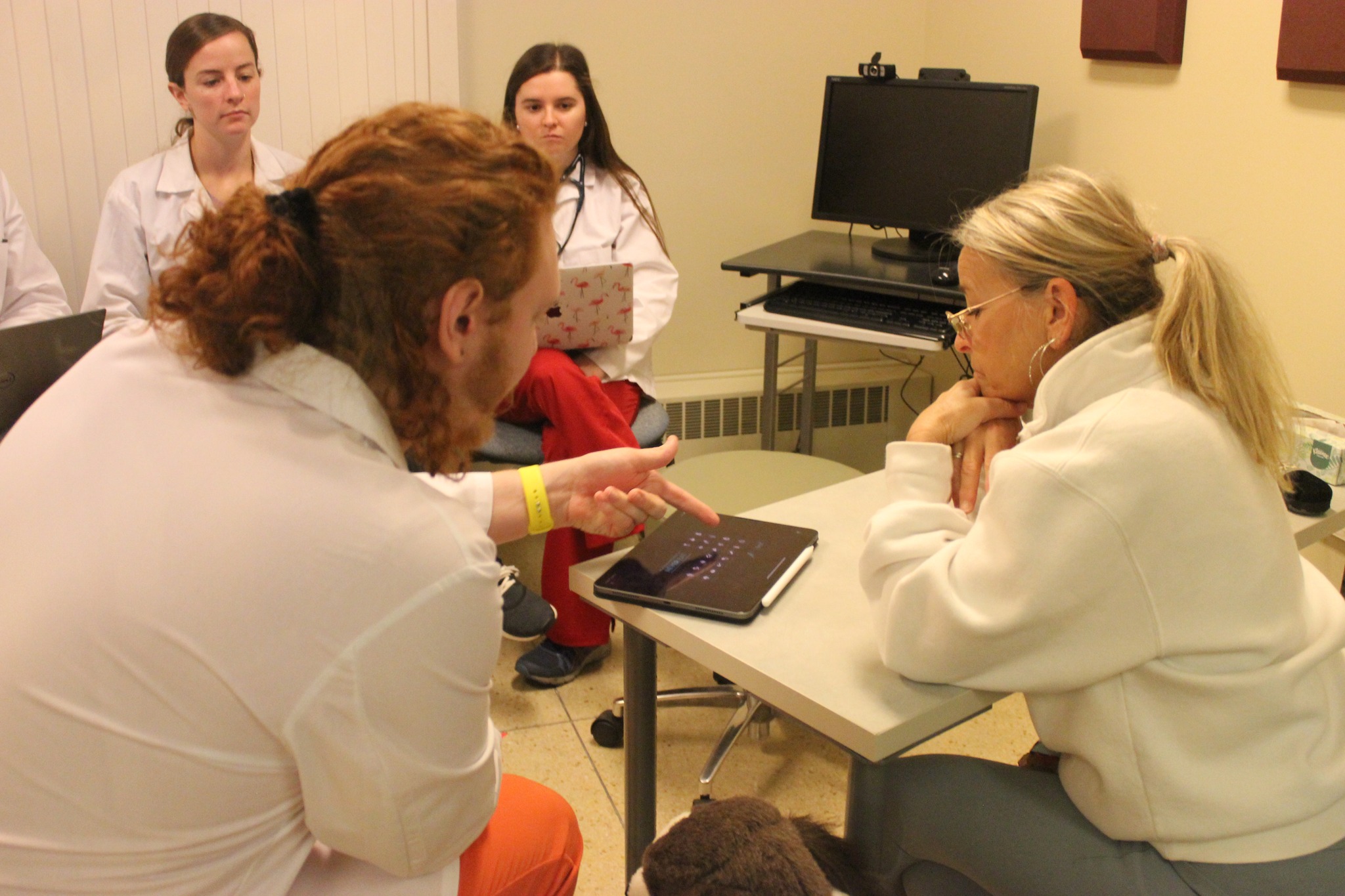
Forms & Prices
You will spend a lot of time in your senior year communicating with the various laboratories in the College by using forms!
The number and complexity of the forms – and the task of deciding which one to use – can be a little daunting to the new student. But don’t worry…before long they’ll be as familiar as old friends!
In this section you can see what some of the more frequently-used forms look like, and when they are used.
There are 6 forms that are used in almost every DC: The SOAPs, the Master Problem list, Clinical Pathology, Cytology/Fluid analysis, WADDL, and Serology forms.
Rules & Reminders
Forms:
Remember to:
- Use the correct WSU VTH form.
- Fill out the request appropriately and completely.
- Describe the specimen submitted – {e.g. lavender top tube, culturette, etc.}
- Be very specific and indicate what you want exactly. Never assume that the diagnostic lab will know what you want.
WARNING: As in practice, failure to submit the correct sample, request the appropriate test, etc. may result in no results or a significant delay.
| Instructions on saving Forms: |
|---|
| There are two ways to save forms so that you do not lose the information on the form: 1. Download the blank PDF and save it to your computer. You can then fill it out as needed, save your changes, and attach it to an email. 2. Fill the form out while it is open in your browser window. Click Print, then change the printer settings to “Save as PDF”. This will save the completed form as a PDF to your computer, where you can attach it to an email. WARNING: If you fill out the form in your browser and THEN try to download it, your changes will NOT be saved! |
Forms
The Clinical Pathology Laboratory’s website contains everything you need to know about running tests through the service.
Below is a quick reference table for what kinds of tests Clin Path offers and a handy guide to what tubes you need to run the tests.
| Form Submitted For | |
|---|---|
| CBC Chemistry Profiles Chemistry – Limited Urinalysis/Fecal test Blood Gas Cytology/Fluid Analysis Blood Banking Coagulation Endocrine Tests | Drug Monitoring Knott’s Test Occult Heartworm K9 Tick/Heartworm Foal IgG Cite test Giardia Ag Occult Blood Ethylene Glycol cPLI & fPLI |
Blood collection tubes / Anti-coagulants:
| red top tube = no anticoagulant green top tube = heparin lavender top tube = EDTA blue top tube = citrate grey top tube = sodium fluoride |
Do NOT call WADDL on the telephone.
Everything you need to know about the tests that WADDL runs and their prices can be found at the Washington Animal Disease Diagnostic Laboratory website.
If you have questions or need help:
First, consult the WADDL User Guide and Schedule of Fees.
- The User Guide and Fee Schedule are available in both printed and electronic formats. For the electronic format, click on the link above.
- Be aware that there is a $10.00 accession fee for all submissions. This is in addition to the cost of the test.
Second, you can talk in person with the WADDL staff.
- The WADDL staff is happy to help – so long as you are patient, polite, and identify yourselves as DC students.
- Just go (in person) to the WADDL reception window
Prices:
You MUST keep track of the money spent on your case.
Through the DC exercises, you are required to obtain your client’s consent to spend money. Therefore, you must be able to effectively justify your plan and provide a reasonable estimate for how much the tests, procedures, and treatment you are proposing will cost. Be sure you also charge the client for your services.
The point of keeping track of the money your client agrees to spend is NOT for you to learn the prices of tests, procedures, or drugs. We just want you to appreciate that these services do have a price and, unfortunately, cost is often limiting in veterinary medicine.
| Important! |
|---|
| The price lists you see on this website are for DC reference only. Actual prices for tests, procedures, and services in the VTH vary by department and are updated more often than this website. As a result, you may see more than one price for a specific test or procedure. Use your best judgement to decide what to charge your client, but make sure it is reasonable. If you are lost or have any questions, your Case Facilitator will be able to help point you in the right directions. |